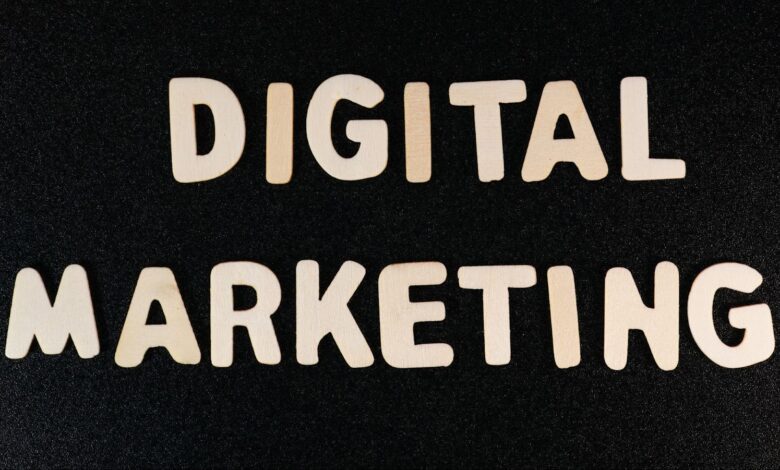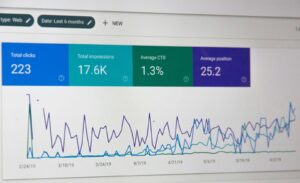
The digital marketing landscape has undergone a seismic shift over the past decade, with influencer marketing emerging as one of the most powerful tools for brand engagement and customer acquisition.
What began as simple celebrity endorsements has evolved into a sophisticated ecosystem worth over $16 billion globally, encompassing micro-influencers, nano-influencers, and content creators across every conceivable niche. However, as this industry has matured, so too have the challenges associated with measuring, optimizing, and scaling influencer campaigns effectively.
Enter artificial intelligence, the transformative force that’s reshaping how brands approach influencer marketing analysis. From predictive analytics that forecast campaign performance to real-time sentiment analysis that tracks brand perception, AI is revolutionizing every aspect of influencer campaign management. This technological evolution isn’t just changing how we measure success; it’s fundamentally altering how we define, execute, and optimize influencer partnerships in an increasingly complex digital ecosystem.
The convergence of AI and influencer marketing represents more than just technological advancement; it’s a paradigm shift that’s enabling brands to move beyond vanity metrics and surface-level analysis toward deep, actionable insights that drive genuine business outcomes.
As we stand on the cusp of this AI-driven revolution, understanding these transformative capabilities has become essential for marketing professionals seeking to maintain a competitive advantage in a rapidly evolving landscape.
The Evolution of Influencer Marketing Measurement
Traditional influencer marketing measurement has long relied on basic metrics like follower counts, likes, and comments, which indicate that, while useful, they provide only a superficial understanding of campaign effectiveness.
These conventional approaches often failed to capture the nuanced relationship between influencer content and actual consumer behavior, leaving brands with incomplete pictures of their marketing investments.
The limitations of traditional measurement became increasingly apparent as influencer marketing matured. Brands discovered that high engagement rates didn’t always translate to sales, that follower counts could be artificially inflated, and that the true value of influencer partnerships extended far beyond immediate, trackable conversions.
The industry needed more sophisticated tools to understand the complex interplay between content quality, audience authenticity, brand alignment, and long-term customer value.
This measurement evolution coincided with the democratization of content creation, which expanded the influencer landscape from a small number of celebrities to millions of content creators worldwide.
This explosion of opportunities also created new challenges: how could brands identify the right partners from an overwhelming pool of options? How could they ensure authentic engagement rather than purchased followers? How could they measure the cumulative impact of multiple smaller influencers versus a single large partnership?
The answer lay in harnessing the power of artificial intelligence to process vast amounts of data, identify meaningful patterns, and provide actionable insights that human analysis alone could never achieve.
AI’s ability to analyze multiple data streams simultaneously from engagement patterns and audience demographics to content sentiment and competitive landscape analysis opened new possibilities for understanding and optimizing influencer marketing effectiveness.
AI-Powered Influencer Discovery and Vetting
One of the most significant applications of AI in influencer marketing lies in the discovery and vetting process. Traditional influencer identification often relied on manual research, personal networks, or basic database searches that could miss valuable partnerships while failing to adequately assess influencer quality and authenticity.
Modern AI systems revolutionize this process by analyzing vast datasets to identify potential influencers based on sophisticated criteria that extend far beyond follower counts. These systems can evaluate content quality, audience engagement, authenticity, brand safety considerations, and alignment with specific campaign objectives.
Machine learning algorithms can identify patterns in successful partnerships, enabling predictive matching that connects brands with influencers most likely to drive meaningful results. Authenticity verification represents another crucial application of AI in influencer vetting.
Advanced algorithms can detect fake followers, purchased engagement, and other forms of artificial audience inflation that have plagued the industry. By analyzing engagement patterns, follower growth rates, comment quality, and interaction timing, AI systems can provide confidence scores for influencer authenticity, helping brands avoid partnerships that appear impressive on the surface but lack genuine influence.
Audience analysis through AI extends beyond basic demographics to include psychographic profiling, interest mapping, and behavioral pattern recognition.
This deeper understanding enables brands to identify influencers whose audiences genuinely align with their target markets, rather than relying on superficial demographic matches that may not translate to actual purchase intent or brand affinity.
The competitive intelligence capabilities of AI also enhance influencer discovery by identifying which content creators are successfully partnering with competitors, what types of content are driving engagement in specific industries, and where market opportunities may exist for brands willing to experiment with emerging influencers or underutilized platforms.
Real-Time Campaign Monitoring and Optimization
The dynamic nature of social media content consumption demands real-time monitoring capabilities that can identify trends, issues, and opportunities as they emerge. AI-powered systems excel in this environment, providing continuous analysis of campaign performance across multiple platforms and metrics simultaneously.
Real-time sentiment analysis represents one of the most valuable applications of AI in campaign monitoring. Rather than waiting for post-campaign analysis to understand audience reception, brands can now track sentiment shifts as content is published and shared.
This capability enables rapid response to negative sentiment while allowing optimization of positive trends before they lose momentum.
Content performance prediction using machine learning models can forecast which types of influencer content are most likely to achieve specific objectives based on historical data, current trends, and audience behavior patterns.
These predictive capabilities enable proactive optimization rather than reactive adjustments, maximizing campaign effectiveness while minimizing wasted investment.
Cross-platform analytics integration through AI systems provides holistic views of influencer campaign performance that account for the multi-platform nature of modern content consumption. Rather than analyzing Instagram, TikTok, YouTube, and other platforms in isolation, AI can track audience journeys across platforms while measuring cumulative impact and identifying optimal platform combinations for specific campaign objectives.
Automated alert systems powered by AI can notify campaign managers when significant events occur, whether positive opportunities like viral content spread or negative issues like sentiment shifts or policy violations.
These alerts enable rapid response while reducing the manual monitoring burden that often overwhelms marketing teams managing multiple concurrent campaigns.
Advanced Analytics and Performance Measurement
The sophistication of AI-driven influencer analytics extends far beyond traditional metrics to encompass comprehensive performance measurement that connects influencer activity to actual business outcomes.
This advancement represents a fundamental shift from measuring activity to measuring impact, providing brands with a clear understanding of their influencer marketing return on investment. Attribution modeling through AI helps solve one of influencer marketing’s most persistent challenges: connecting influencer content exposure to eventual conversions across multiple touchpoints and time delays.
Machine learning algorithms can analyze customer journey data to identify the role of influencer content in driving awareness, consideration, and purchase decisions, even when conversions occur days or weeks after initial exposure.
Lifetime value analysis enables brands to understand not just immediate campaign results but the long-term value of customers acquired through influencer partnerships. AI systems can analyze customer behavior patterns to predict retention rates, future purchase values, and advocacy potential, providing more complete pictures of influencer marketing effectiveness.
Competitive benchmarking through AI provides context for campaign performance by analyzing industry standards, competitor activities, and market trends. This capability helps brands understand whether their results represent strong performance relative to market conditions or indicate opportunities for improvement.
Predictive analytics for campaign optimization can forecast the likely impact of potential changes to influencer partnerships, content strategies, or budget allocations. These capabilities enable data-driven decision-making that maximizes campaign effectiveness while minimizing risk and waste.
Privacy, Ethics, and Compliance Considerations
The increasing sophistication of AI-powered influencer analytics raises important questions about privacy, ethics, and regulatory compliance that brands must address proactively. As AI systems become more capable of analyzing personal data and predicting individual behavior, ensuring responsible use becomes both a legal requirement and a brand reputation imperative.
Data privacy regulations like GDPR, CCPA, and emerging legislation worldwide create complex compliance requirements for AI systems that process personal information from social media platforms.
Understanding these requirements and implementing appropriate safeguards is essential for brands utilizing AI-powered influencer analytics while avoiding regulatory penalties and consumer backlash.
Algorithmic bias represents another significant consideration in AI-powered influencer marketing. Machine learning systems can inadvertently perpetuate or amplify existing biases in data, leading to discriminatory outcomes in influencer selection, audience targeting, or performance measurement.
Addressing these issues requires careful algorithm design, diverse training data, and ongoing monitoring for bias indicators.
Transparency and explainability in AI decision-making become increasingly important as brands rely more heavily on algorithmic recommendations for influencer partnerships and campaign optimization.
Stakeholders need to understand how AI systems reach their conclusions to maintain confidence in results while ensuring alignment with brand values and objectives. Ethical influencer partnership practices supported by AI can help brands avoid controversies while building authentic relationships with content creators and audiences.
AI systems can monitor for potential issues like undisclosed sponsorships, inappropriate content associations, or conflicts of interest that could damage brand reputation.
The Role of Professional AI Implementation
While AI tools for influencer marketing continue to become more accessible, the complexity of modern AI systems often requires professional implementation and ongoing optimization to achieve maximum value.
This is where specialized AI consulting services become invaluable, providing the expertise necessary to select, implement, and optimize AI solutions for specific business requirements.
Professional AI implementation ensures that influencer marketing analytics systems integrate properly with existing marketing technology stacks while providing the customization necessary to address unique business objectives and constraints.
This integration extends beyond technical compatibility to include data governance, privacy compliance, and workflow optimization that maximizes system adoption and effectiveness. Training and change management represent crucial components of successful AI implementation in influencer marketing.
Professional consultants can provide the education and support necessary for marketing teams to effectively utilize AI capabilities while developing internal expertise that supports long-term success and optimization.
Ongoing optimization and maintenance of AI systems require continuous attention to algorithm performance, data quality, and evolving business requirements.
Professional AI consulting services provide the expertise necessary to maintain system effectiveness while adapting to changing market conditions and technological developments.
Custom algorithm development for specialized influencer marketing requirements often exceeds the capabilities of off-the-shelf solutions.
Professional AI consultants can develop proprietary algorithms tailored to specific industry requirements, competitive landscapes, or measurement objectives that provide sustainable competitive advantages.
Emerging Technologies and Future Capabilities
The future of AI in influencer marketing promises even more sophisticated capabilities as emerging technologies mature and integrate with existing analytics platforms. Understanding these developments helps brands prepare for the next wave of innovation while making strategic decisions about current technology investments.
Natural language processing advancements are enabling more nuanced analysis of content sentiment, brand mention context, and audience response quality.
These improvements provide deeper insights into how influencer content is actually perceived and discussed, moving beyond simple positive/negative sentiment to understand complex emotional responses and conversation drivers.
Computer vision capabilities are revolutionizing visual content analysis, enabling AI systems to understand image and video content in ways that complement text-based analytics.
These capabilities include brand logo recognition, product placement analysis, visual sentiment assessment, and style trend identification, which provide a comprehensive understanding of visual content impact.
Predictive modeling sophistication continues to improve as AI systems access larger datasets and more powerful computing resources. Future systems will provide increasingly accurate forecasts of campaign performance, influencer career trajectories, and market trend evolution that enable more strategic long-term planning.
Integration with emerging platforms and content formats ensures that AI analytics capabilities keep pace with the rapidly evolving social media landscape. As new platforms emerge and content formats evolve, AI systems must adapt to maintain comprehensive coverage of influencer marketing opportunities and performance measurement.
Implementing AI-Driven Influencer Analytics
Successfully implementing AI-driven influencer analytics requires strategic planning that considers current capabilities, future objectives, and organizational readiness for technological transformation. This implementation process involves multiple phases and stakeholders working together to ensure sustainable success.
Technology assessment and selection represent the crucial first steps in AI implementation, requiring careful evaluation of available solutions against specific business requirements, budget constraints, and integration needs.
This assessment should consider both current needs and future scalability to ensure long-term value from technology investments. Data integration and quality management are essential foundations for effective AI analytics, requiring clean, comprehensive, and consistently formatted data from multiple sources.
Poor data quality can significantly impact AI system effectiveness, making data preparation and governance crucial components of successful implementation. Team training and capability development ensure that marketing professionals can effectively utilize AI tools while understanding their limitations and optimal applications.
This training should encompass both technical skills and strategic thinking about how AI insights can inform campaign optimization and strategic planning. Performance measurement and optimization frameworks help organizations track the effectiveness of their AI implementations while identifying opportunities for improvement.
These frameworks should include both technical metrics, like system performance, and business metrics, such as campaign ROI improvement.
Global Market Implications and Opportunities
The global expansion of AI-powered influencer marketing creates new opportunities for brands to reach international audiences while navigating complex cultural, linguistic, and regulatory differences. Understanding these global implications helps brands develop strategies that leverage AI capabilities for international growth.
Cross-cultural content analysis through AI enables brands to understand how their messaging resonates across different cultural contexts while identifying opportunities for localization and adaptation.
These capabilities are particularly valuable for global brands seeking to maintain consistent messaging while respecting local preferences and sensitivities.
Multi-language sentiment analysis and content understanding allow brands to monitor and optimize influencer campaigns across diverse linguistic markets without requiring extensive human translation and analysis resources.
This capability significantly reduces the cost and complexity of global influencer marketing while improving responsiveness to local market conditions.
Regulatory compliance across multiple jurisdictions becomes more manageable with AI systems that can monitor for region-specific requirements while flagging potential compliance issues before they become problems.
This capability is particularly valuable as influencer marketing regulations continue to evolve worldwide. Market opportunity identification through AI can help brands discover emerging markets, trending content formats, and underutilized influencer partnerships that provide competitive advantages in global expansion efforts.
Conclusion: Embracing the AI-Powered Future
The revolution in influencer marketing analytics powered by artificial intelligence represents more than just technological advancement; it’s a fundamental transformation in how brands understand, execute, and optimize their most human-centered marketing activities.
As AI capabilities continue to evolve and mature, the brands that embrace these technologies while maintaining focus on authentic relationships and genuine value creation will be best positioned for sustained success.
The future of influencer marketing lies in the intelligent synthesis of human creativity and AI-powered insights, where technology amplifies rather than replaces the fundamentally human elements that make influencer partnerships effective.
Brands that successfully navigate this balance will discover new levels of efficiency, effectiveness, and authenticity in their influencer marketing efforts. As we look toward this AI-powered future, the most successful organizations will be those that view artificial intelligence not as a replacement for human judgment but as a powerful amplifier of human capabilities.
By combining the analytical power of AI with the creative and strategic thinking of skilled marketing professionals, brands can achieve unprecedented levels of success in their influencer marketing initiatives while building genuine connections with audiences worldwide.
The transformation is already underway, and the brands that act now to understand and implement AI-powered influencer analytics will establish sustainable competitive advantages that compound over time.
The future of digital marketing is here, and it’s powered by the intelligent application of artificial intelligence to the fundamentally human art of influence and persuasion.







